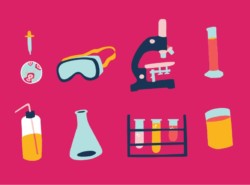
Prevent breast cancer progression
Published: 10/9/19 1:48 AM
Claudine Bonder
For breast cancer to grow and spread, that the tumour needs a blood supply to provide oxygen and nutrients – the process of developing veins and capillaries in the tumour is called vascularisation.
The tumour can develop a blood supply by two main methods: by promoting the growth from existing blood vessels into the tumour; or by the cancer cells themselves forming vessel-like structures for blood to flow through a process called ‘vasculogenic mimicry’.
Highly vascularised breast cancer tumours, such as invasive ductal carcinoma, are able to grow aggressively. Current treatments designed to inhibit blood supply to the tumours are not effective and the prognosis is poor.
Associate Professor Claudine Bonder and her team have previously shown that vascularisation in healthy tissues is supported by an individual protein called interleukin-3 (IL-3), and they believe this protein could also play an important role in the vascularisation and growth of aggressive breast cancers.
This study aims to demonstrate that IL-3 contributes to the initial growth of breast tumours and is an important common factor for both methods of tumour vascularisation and thus breast cancer metastasis (when the tumours spread to other parts of the body).
A/Prof Bonder believes that by targeting IL-3 with a blocking antibody (which is currently in clinical trials for acute myeloid leukaemia patients) could be repurposed and rapidly developed for better management for breast cancer patients particularly for those with the aggressive and difficult to manage invasive ductal carcinoma breast cancers.